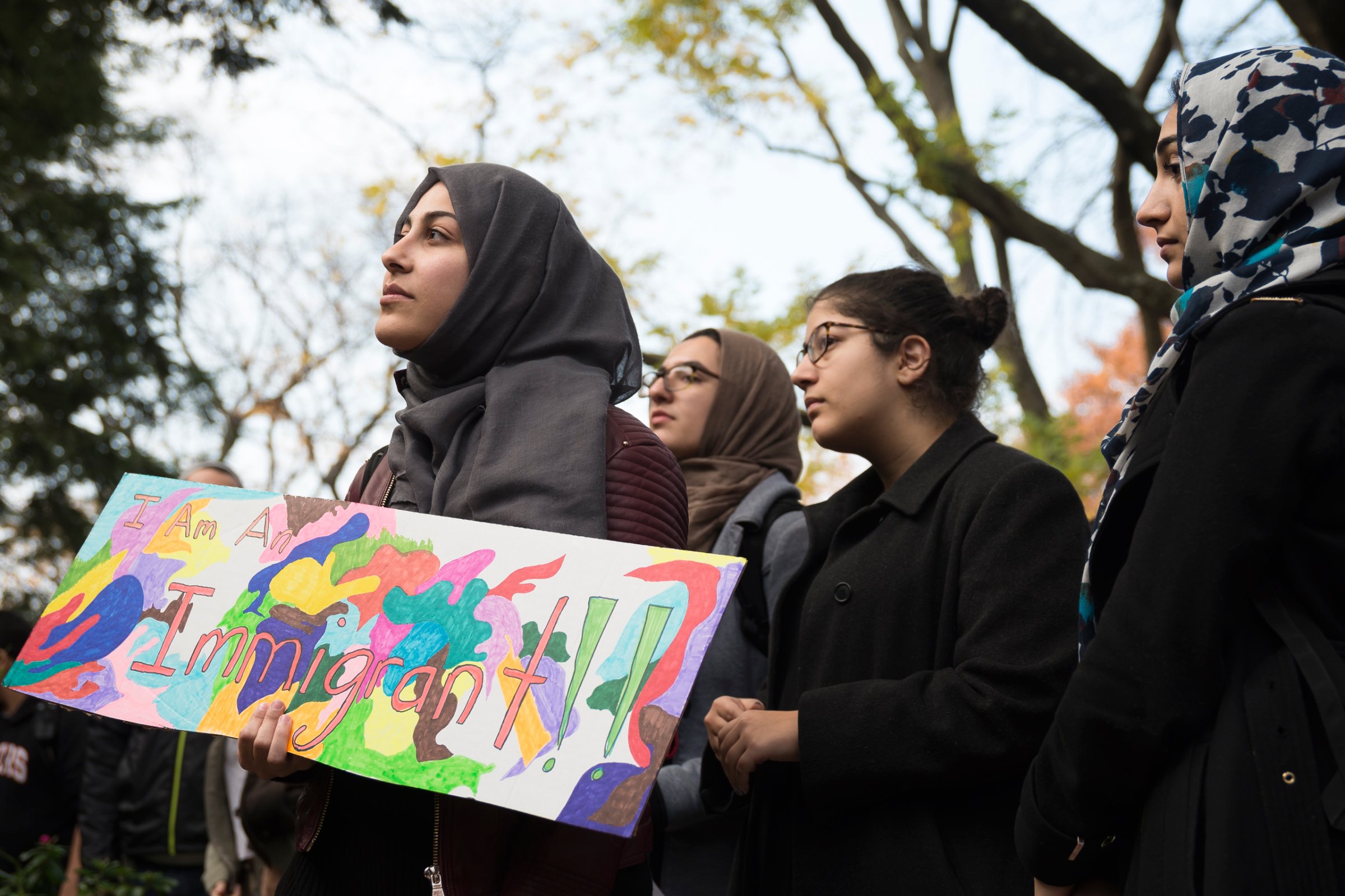
The chancellor of the largest four-year public university system in the country said this week that it won’t help federal authorities deport undocumented students—an announcement that came the same day students across the country led walkouts urging schools to shield students from the deportations proposed by President-elect Donald Trump.
“We want people to know that they will be welcome here if they lack documentation or not,” Timothy White, chancellor of the California State University (CSU) system, told TIME. “The concern that has arisen with respect to many of our students and their families is real and has become debilitating, and I want our students to know—and I want our faculty and staff and communities to know—that we support these students, that we understand the times we’re in, but we’re going to be there to support them and help them succeed, whatever comes our way.”
Trump said he plans to deport up to three million undocumented immigrants with criminal records, and he has said he will repeal President Obama’s executive orders, which could include the Deferred Action for Childhood Arrivals policy. “It’s not a secret that the President-elect has indicated that he wants do things differently with respect to immigration,” White said.
At a Board of Trustees meeting on Wednesday, White noted that students on CSU campuses have experienced “a lot of uncertainty at best, and a sense of fear and vulnerability at worst,” in the wake of the presidential election.
During the meeting, White said the CSU system would not work with state, local or federal law enforcement agencies to enforce federal immigration law. He said university police departments would not honor immigration hold requests, nor would they question or arrest anyone simply because they are undocumented or suspected of being undocumented.
Of the more than 470,000 students in the CSU system, White estimated that 10,000 to 12,000 are undocumented. He said many students have reached out to him since Wednesday’s remarks, which drew from his personal experience. White, who is from Argentina, immigrated to the California when he was 9 years old.
“I find myself thinking back to those days and understanding what it really means and feels like to be somebody who comes into a new country,” he said. “I have a special place in my personal history that makes me very attentive when somebody is marginalized or potentially marginalized by a policy of ours at the university or by a state law or by a federal law.”
Students across the country this week have called for universities to designate “sanctuary campuses,” a term that mirrors the classification of “sanctuary cities,” which have pledged to do what they can to protect residents from deportation.
María Blanco, executive director of the Undocumented Student Legal Services Center, said student petitions have focused on three common requests: that universities not share students’ personal information—including address and immigration status—with U.S. Immigration and Customs Enforcement (ICE) without a subpoena, that they prevent law enforcement agencies from conducting raids on campus without a warrant, and that campus police officers decline to take on the responsibility of enforcing immigration law.
Blanco said privacy laws and Fourth Amendment rights against unreasonable search and seizure should enable schools to accommodate all three requests, which would help ensure that undocumented students can at least complete their degrees. “If somebody got sued for what we just talked about—not sharing records which are already protected under existing law and not allowing indiscriminate raids on a campus, or because police refused to enforce immigration law—I’m positive they would not win their case,” she told TIME, suggesting courts would rule in favor of universities.
Blanco said the undocumented students who have sought advice from her office since Election Day have been “very, very stressed.”
“They really feel like the rug’s been pulled out from under them,” she said, adding that any indication of support from university leaders serves an important purpose. “It’s more than symbolic because it might retain students, and it might keep students coming to the different colleges if they have these assurances.”
But Jessica Vaughan, director of policy studies at the Center for Immigration Studies, which supports more restrictive immigration policies, thinks universities that decline to cooperate with federal authorities have questionable legal standing and face the loss of federal funding.
“Colleges and universities cannot control the movement of law enforcement agencies onto their campuses,” she told TIME, dismissing “sanctuary campus” policies as unnecessary. “They cannot prevent ICE, for example, from coming onto a campus to make an arrest.”
“Obstructing law enforcement and refusing to share information could be very problematic and could be contrary to federal law and rise to the level of harboring,” she added.
White is quick to note that his announcement Wednesday did not designate a policy change, and he said the university system will still comply with immigration laws. But he also said CSU will enforce a standard of inclusivity and diversity, and he thinks leaders at other universities will soon need to take a stand on the issue.
“It’s much more than the politics of the moment,” White said. “What’s at stake here with respect to education—access to education for people—is really the whole fabric of America’s communities and its economy. To me, politics are politics, and America’s resilient, and there’s different people, and things come and go. But there’s a bigger thing at stake here.”
More Must-Reads From TIME
- The 100 Most Influential People of 2024
- The Revolution of Yulia Navalnaya
- 6 Compliments That Land Every Time
- What's the Deal With the Bitcoin Halving?
- If You're Dating Right Now , You're Brave: Column
- The AI That Could Heal a Divided Internet
- Fallout Is a Brilliant Model for the Future of Video Game Adaptations
- Want Weekly Recs on What to Watch, Read, and More? Sign Up for Worth Your Time
Write to Katie Reilly at Katie.Reilly@time.com